Heart-Healthy Fitness Meals: Fuel Your Body, Power Your Workouts (and Taste Buds!)
Ever feel that post-workout slump hit you harder than a rogue dumbbell? You crushed your gym session, feeling energized and accomplished. But then, hunger pangs strike, and suddenly that healthy salad doesn’t seem so appealing.
That’s where heart-healthy fitness meals come in. These aren’t just bland, rabbit-food concoctions. We’re talking delicious, satisfying dishes that nourish your body, optimize your workouts, and keep you feeling fantastic.
Think of your body like a high-performance car. You wouldn’t fill it with low-grade fuel and expect to win a race, would you? The same goes for your workouts.
By incorporating the right nutrients – lean protein, complex carbohydrates, healthy fats, and essential vitamins – you’re providing the building blocks for muscle repair, sustained energy, and overall well-being.
This comprehensive guide dives deep into the world of heart-healthy fitness meals.
We’ll explore the science behind the ingredients, dish up delicious recipe ideas, and answer all your burning questions about fueling your fitness journey.
So, buckle up, grab your grocery list, and get ready to transform your body and taste buds!
Why Heart-Healthy Matters
Before we delve into meal plans and recipes, let’s address the “why” behind heart-healthy eating for fitness enthusiasts. Here’s the lowdown:
- Heart Health is Overall Health: A strong heart is vital for peak performance, not just cardiovascular exercises. It delivers oxygen and nutrients throughout your body, impacting muscle function, recovery, and endurance.
- Manages Blood Sugar: Choosing complex carbs over refined ones helps regulate blood sugar, preventing energy crashes and maintaining focus during workouts.
- Boosts Metabolism: Lean protein keeps you feeling fuller for longer, reducing cravings and aiding in building and maintaining muscle mass, which in turn, boosts your metabolism.
- Promotes Recovery: Healthy fats play a crucial role in hormone production, cell repair, and reducing inflammation, all essential for post-workout recovery.
Building Your Heart-Healthy Fitness Plate
Now, let’s talk about building a balanced and delicious plate that fuels your fitness goals:
- Lean Protein (25-30%): Chicken breast, fish (salmon, tuna), turkey, lentils, beans, tofu, Greek yogurt. These provide essential amino acids for muscle building and repair.
- Complex Carbohydrates (40-50%): Whole grains (brown rice, quinoa, oats), sweet potatoes, fruits (berries, apples), vegetables (broccoli, spinach, carrots). These provide sustained energy and dietary fiber for digestion.
- Healthy Fats (20-30%): Avocados, nuts (almonds, walnuts), seeds (chia, flax), olive oil. These support hormone regulation, satiety, and nutrient absorption.
Remember: These are general guidelines. Adjust portion sizes based on your individual calorie needs and activity level.
Ready to whip up some delicious and nutritious meals? Let’s explore some recipe ideas!
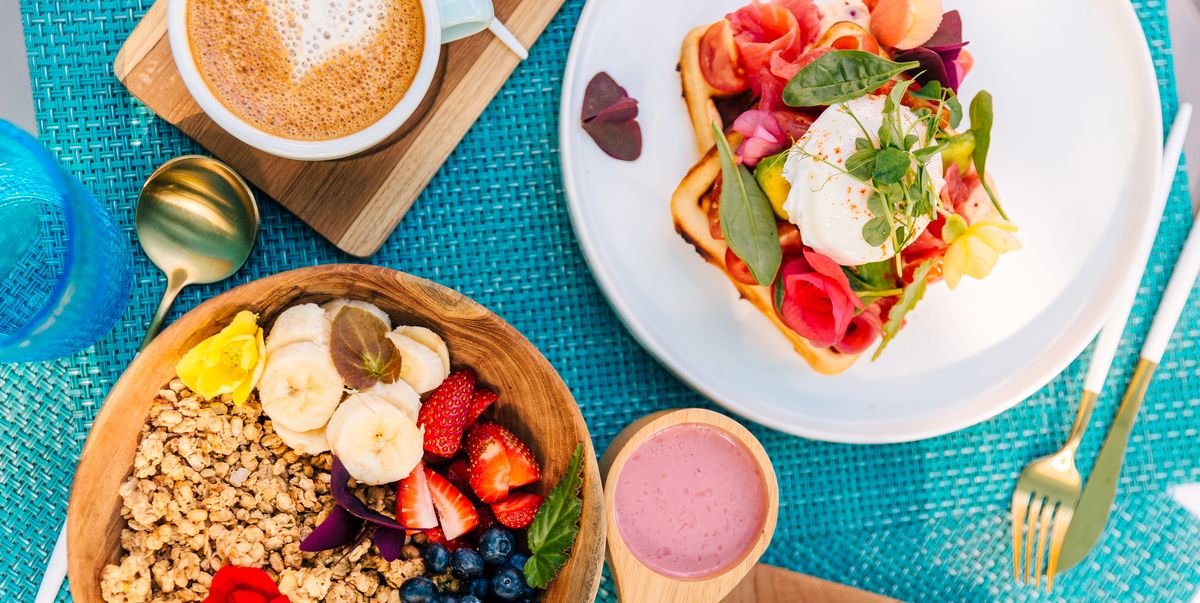
Supercharge Your Mornings: Heart-Healthy Breakfast Ideas
Breakfast truly is the most important meal of the day, especially for fitness enthusiasts.
Here are some heart-healthy breakfast options to jumpstart your energy:
The Power Bowl: Packed with protein, fiber, and healthy fats, this customizable bowl is a winner. Combine a base of rolled oats or Greek yogurt with berries, chopped nuts, chia seeds, and a drizzle of honey for natural sweetness.
Scrambled Glory: Ditch the greasy diner fare and opt for a healthier version. Scramble eggs with chopped spinach and diced tomatoes for a protein and veggie punch. Serve with a slice of whole-wheat toast for added complex carbs.
Speedy Smoothie: Perfect for busy mornings, whip up a smoothie with protein powder, a handful of spinach, frozen berries, and almond milk. It’s a delicious and convenient way to get a dose of nutrients on the go.
Sweet Potato Power: Baked sweet potatoes are a fantastic source of complex carbohydrates. Top yours with a dollop of Greek yogurt, a sprinkle of cinnamon, and some chopped walnuts for a satisfying and flavorful breakfast.
Hearty Whole-Wheat Pancakes: Who says pancakes can’t be healthy? Make a batch of whole-wheat pancakes using Greek yogurt instead of milk. Top them with sliced banana, a drizzle of maple syrup, and a sprinkle of chia seeds for a balanced and delicious breakfast.
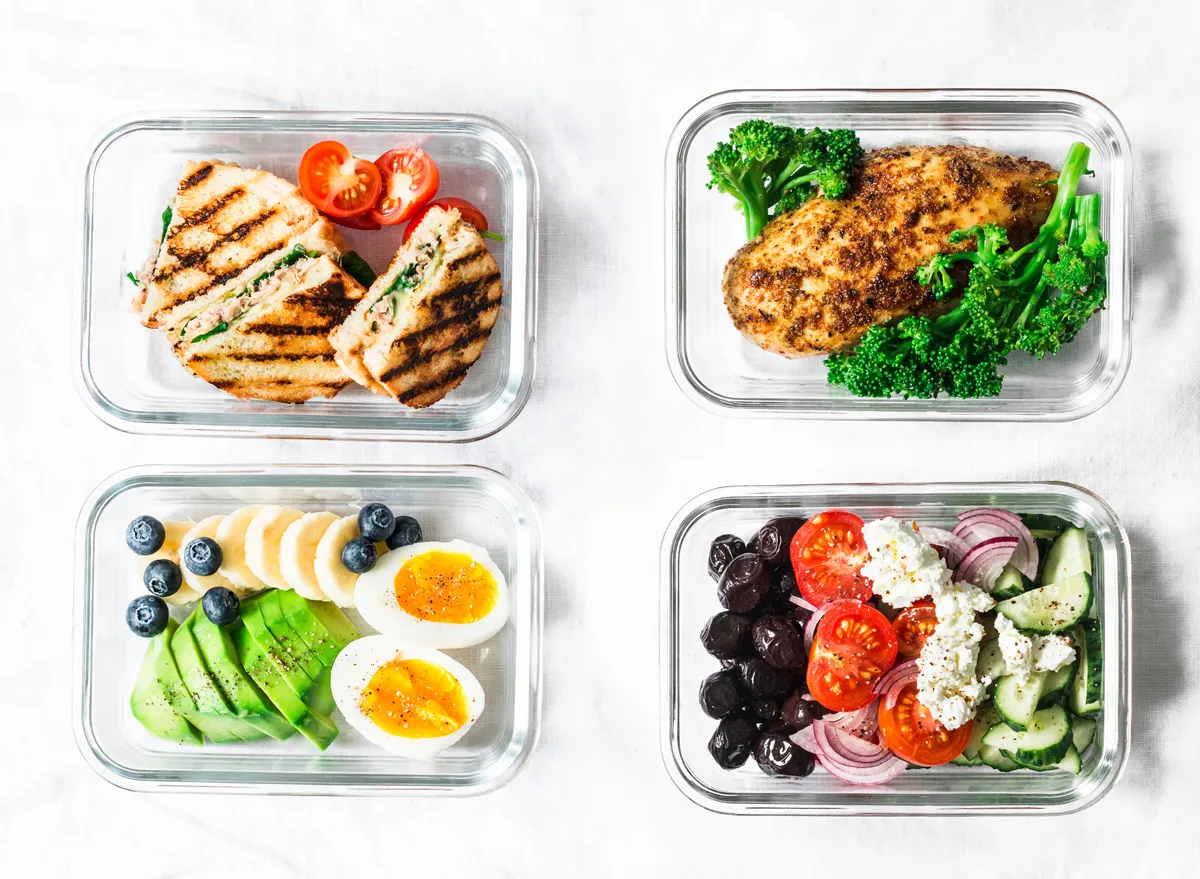
Fueling Your Midday: Heart-Healthy Lunch Options
Lunch should be a lighter yet satisfying meal to keep you energized throughout the afternoon.
Here are some heart-healthy lunch ideas:
The Build-Your-Own Salad: Salads get a bad rap for being boring, but they can be anything but! Start with a bed of mixed greens, add grilled chicken or salmon, chopped vegetables (cucumber, bell peppers, carrots), a sprinkle of feta cheese, and a drizzle of olive oil and balsamic vinegar dressing.
Tuna Powerhouse: Skip the mayo-laden tuna salad. Opt for a lighter version with canned tuna mixed with Greek yogurt, chopped celery, red onion, and a squeeze of lemon juice. Serve it on a bed of whole-wheat crackers for a protein-packed lunch.
Lentil Soup Sensation: Lentil soup is a hearty and budget-friendly option. Packed with protein and fiber, it keeps you feeling full for longer. Add chopped vegetables like carrots and celery for extra flavor and nutrients.
Leftover Magic: Leftovers from a healthy dinner are a great way to save time and ensure a nutritious lunch. Repurpose grilled chicken or salmon into a salad or wrap with whole-wheat tortillas and some hummus.
Quinoa Power Bowl: Similar to the breakfast power bowl, this lunch version features quinoa as the base. Add grilled shrimp, black beans, chopped vegetables, and a light vinaigrette dressing for a flavorful and satisfying meal.
Remember, these are just a springboard for inspiration. Feel free to experiment with different ingredients and flavors to create your own heart-healthy lunch favorites.
Stay tuned for the next section where we’ll explore delicious and nutritious dinner options to fuel your post-workout recovery!
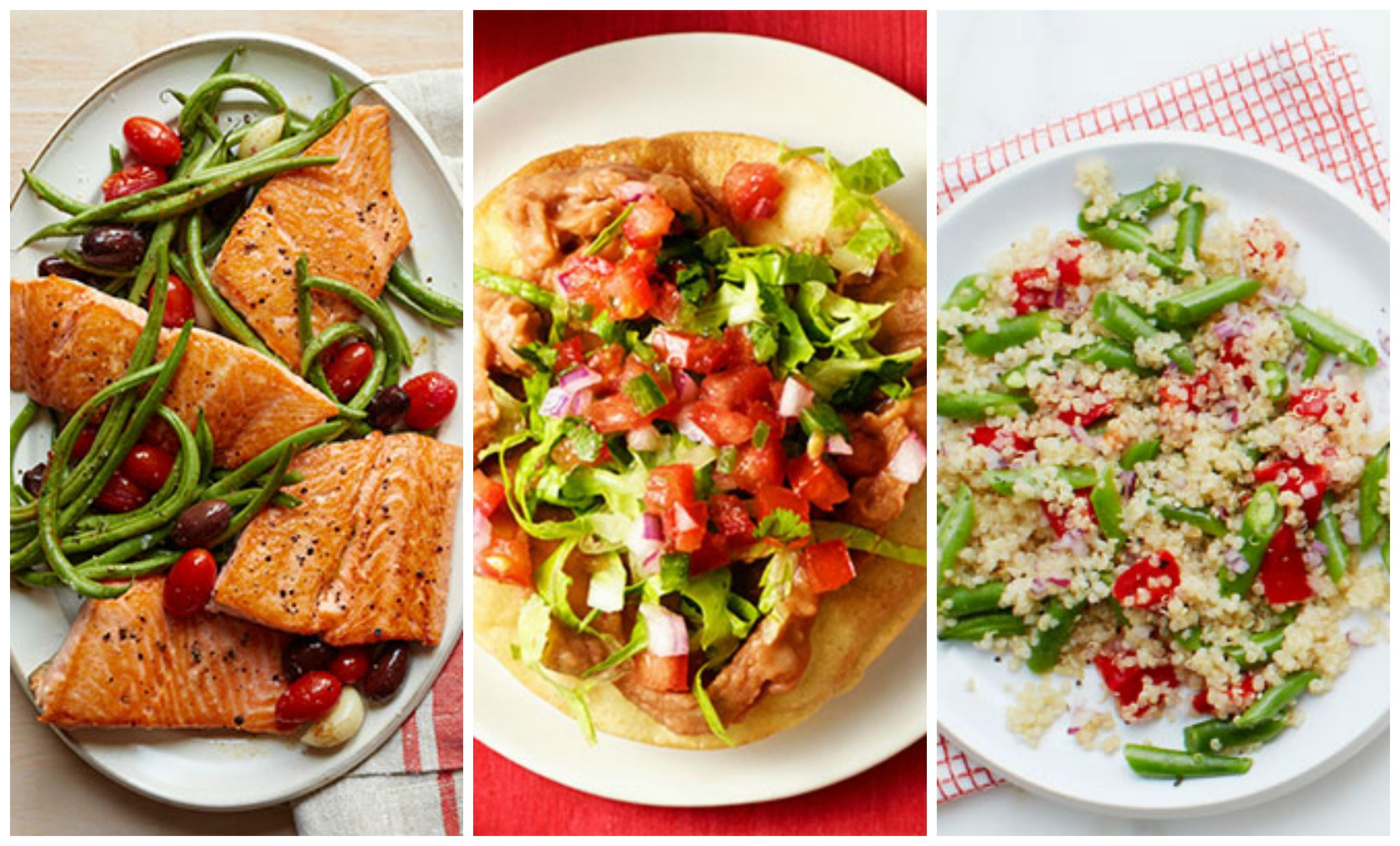
Power Up for Performance: Heart-Healthy Dinner Ideas
Dinner is your chance to replenish energy stores and provide your body with the nutrients it needs for recovery and muscle growth.
Here are some heart-healthy dinner options to optimize your post-workout refuel:
Salmon with Roasted Vegetables: Salmon is an excellent source of lean protein and omega-3 fatty acids, essential for heart and brain health.
Roast a variety of colorful vegetables like broccoli, asparagus, and sweet potato alongside the salmon for a complete and flavorful meal. Drizzle with olive oil and your favorite herbs and spices for added zest.
Turkey Chili Fiesta: This hearty chili is perfect for a chilly evening. Ground turkey provides lean protein, while black beans and kidney beans add fiber and plant-based protein.
Tomatoes, corn, and bell peppers offer a variety of vitamins and antioxidants. Top it off with a dollop of Greek yogurt or shredded cheese and a sprinkle of avocado for a creamy and satisfying finish.
Chicken Stir-Fry Extravaganza: Stir-fries are a quick and easy way to get a healthy meal on the table. Marinate chicken breast strips in a low-sodium soy sauce, ginger, and garlic mixture.
Stir-fry them with colorful vegetables like broccoli, snap peas, and red peppers. Serve over brown rice or quinoa for a complete and balanced meal.
Lentil Shepherd’s Pie: A vegetarian twist on a classic comfort food, lentil shepherd’s pie is packed with protein and fiber. Lentils provide a hearty base, while mashed sweet potatoes or cauliflower offer a healthy and delicious topping.
Don’t forget to add chopped vegetables like carrots, peas, and corn for extra flavor and nutrients.
Baked Veggie Burgers: Who says burgers can’t be healthy? Opt for homemade veggie burgers packed with black beans, quinoa, and roasted vegetables.
Bake them in the oven for a healthier alternative to fried burgers. Serve on whole-wheat buns with your favorite toppings like lettuce, tomato, and a light vinaigrette dressing.
These are just a few ideas to get you started. Remember, variety is key! Experiment with different protein sources, whole grains, vegetables, and healthy fats to create a well-rounded and delicious dinner repertoire that fuels your fitness journey.
:strip_icc()/heart-healthy-chocolate-recipes-hero-02-396d3f9807f244e9a557d61119e31566.jpg)
Sweet Treats Can Be Heart-Healthy Too!
Let’s face it, sometimes you just crave something sweet. The good news is, you can indulge your sweet tooth without derailing your healthy eating goals.
Here are some heart-healthy dessert options:
Baked Apples with Cinnamon: A classic and simple dessert, baked apples are naturally sweet and satisfying. Stuff them with chopped walnuts, raisins, and a sprinkle of cinnamon for added flavor and texture. Drizzle with a touch of honey for a touch of sweetness.
Greek Yogurt Parfaits: Layer Greek yogurt with berries, a sprinkle of granola, and a drizzle of honey for a refreshing and protein-packed dessert.
Dark Chocolate Bliss: Dark chocolate (at least 70% cacao) is a good source of antioxidants. Enjoy a small square or two after dinner for a guilt-free indulgence.
Frozen Fruit Popsicles: Blend frozen berries, yogurt, and a splash of almond milk for a healthy and refreshing homemade popsicle. Perfect for a hot summer day!
Chia Seed Pudding: Chia seeds are a nutritional powerhouse, rich in fiber and omega-3 fatty acids. Make a chia seed pudding by combining chia seeds, almond milk, and your favorite fruits and spices for a delicious and healthy dessert.
Remember, moderation is key. Enjoy these treats in reasonable portions to keep your heart-healthy goals on track.
Up next, we’ll tackle some frequently asked questions about heart-healthy fitness meals to ensure you have all the information you need to succeed!
Frequently Asked Questions (FAQs) about Heart-Healthy Fitness Meals
I’m short on time. Do you have any quick and easy heart-healthy meal ideas?
Absolutely! Here are some time-saving tips:
- Meal prep: Dedicate a day each week to prepping ingredients like chopping vegetables, grilling chicken or fish, and cooking quinoa or brown rice. This makes assembling meals throughout the week a breeze.
- Frozen is your friend: Frozen vegetables and fruits are a lifesaver. They’re flash-frozen at peak ripeness, locking in nutrients, and are often pre-chopped, saving you prep time.
- Leftovers are lunch gold: Cook a larger portion at dinner and repurpose leftovers for lunch the next day.
- Smoothies on the go: Whip up a quick and nutritious smoothie for breakfast or a post-workout snack.
- Canned fish is a healthy option: Canned tuna or salmon are excellent sources of lean protein and omega-3s. Opt for varieties packed in water for a lower sodium content.
I have dietary restrictions. Can I still follow a heart-healthy meal plan?
Absolutely! Here are some tips:
- Gluten-free: Opt for naturally gluten-free grains like quinoa, brown rice, and oats. Explore gluten-free alternatives like almond flour or coconut flour for baking.
- Dairy-free: Replace dairy with plant-based alternatives like almond milk, coconut milk, and dairy-free yogurt. Many plant-based milks are fortified with calcium and vitamin D.
- Vegetarian/Vegan: Focus on plant-based protein sources like beans, lentils, tofu, tempeh, and quinoa. Ensure you’re getting enough essential nutrients like iron and vitamin B12 through fortified foods or supplements.
What are some healthy cooking methods to preserve nutrients?
Here are some heart-healthy cooking methods:
- Baking: Baking is a great way to cook lean protein and vegetables without adding excess fat.
- Grilling: Grilling adds a smoky flavor to meats and vegetables while minimizing fat content.
- Broiling: Broiling is similar to grilling but uses direct heat from above. It’s perfect for browning meats and vegetables.
- Sautéing: Sautéing uses a small amount of healthy fat like olive oil to cook vegetables and protein quickly.
- Steaming: Steaming is a gentle cooking method that preserves the nutrients in vegetables.
How much water should I drink daily?
Water is essential for overall health and plays a crucial role in digestion, nutrient absorption, and muscle function. Aim for eight glasses of water per day, adjusting based on your activity level and climate.
Can I still enjoy occasional treats?
Absolutely! Restrictive diets are often unsustainable. The key is moderation. Enjoy occasional treats like a slice of dark chocolate or a small serving of frozen yogurt. Remember, a healthy lifestyle is about balance and making sustainable choices for the long term.
Conclusion
Eating a heart-healthy diet doesn’t have to be bland or boring. With a little planning and creativity, you can create delicious and satisfying meals that fuel your body, optimize your workouts, and keep you feeling fantastic.
Remember, consistency is key! By incorporating these heart-healthy principles into your daily routine, you’ll be well on your way to achieving your fitness goals and living a long and healthy life.
Disclaimer: This information is for educational purposes only and should not be construed as medical advice. Always consult with a healthcare professional before making any changes to your diet or exercise routine.
Reference Links:
Why Heart-Healthy Matters
- American Heart Association: https://www.heart.org/
- Mayo Clinic: https://www.mayoclinic.org/diseases-conditions/heart-disease/in-depth/heart-healthy-diet/art-20046702
Building Your Heart-Healthy Fitness Plate
- Academy of Nutrition and Dietetics: https://www.eatright.org/
- Harvard School of Public Health: https://www.health.harvard.edu/staying-healthy/healthy-eating-plate
Heart-Healthy Breakfast Ideas
- National Institutes of Health: https://pubmed.ncbi.nlm.nih.gov/30351152/
Heart-Healthy Lunch Options
- Centers for Disease Control and Prevention: https://www.cdc.gov/nutrition/index.html
Power Up for Performance: Heart-Healthy Dinner Ideas
- American Council on Exercise: https://www.acefitness.org/resources/everyone/exercise-library/
Sweet Treats Can Be Heart-Healthy Too!
- American Diabetes Association: https://diabetes.org/
FAQs
- National Library of Medicine: https://www.nlm.nih.gov/
Disclaimer
- Include a note about consulting with a healthcare professional before making any changes: This information is for educational purposes only and should not be construed as medical advice. Always consult with a healthcare professional before making any changes to your diet or exercise routine.

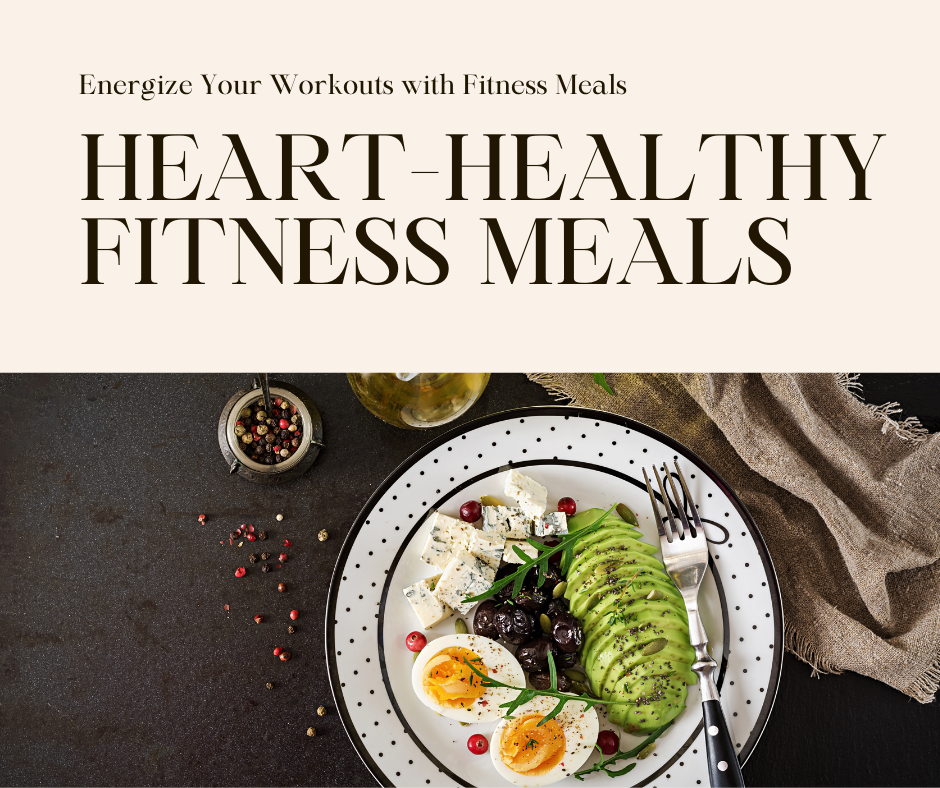





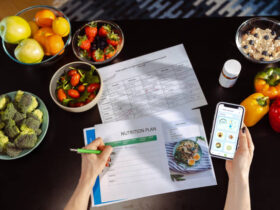



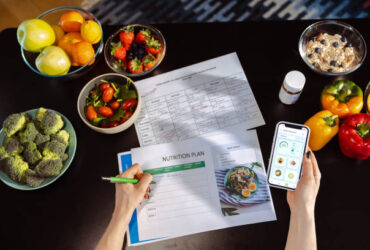



Leave a Reply